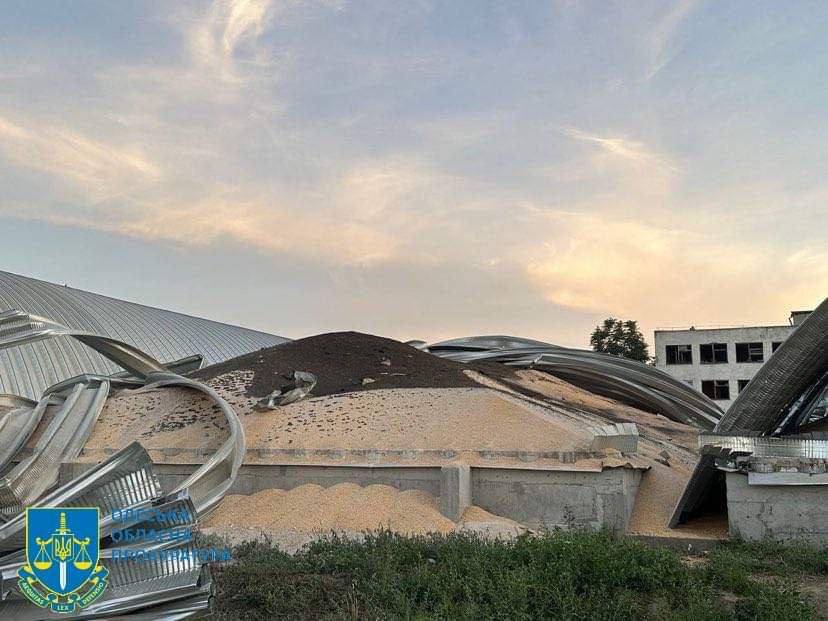Russia has carried out a drone attack on Ukraine’s key port situated along the Danube River, triggering a surge in grain prices across international markets. This move comes as part of an intensification of efforts to curtail Ukraine’s grain exports.
The targeted attack had a significant impact on the port of Izmail, leaving structures in ruins and disrupting the loading of Ukrainian grain onto ships. The attack appears to be a response to Russia’s reimposition of a de-facto blockade on Ukrainian grain shipments in mid-July.
Ukrainian Deputy Prime Minister Oleksandr Kubrakov revealed that the attack resulted in damage to approximately 40,000 tons of grain intended for export to Africa, China, and Israel. President Volodymyr Zelenskiy condemned Russia’s actions, characterizing them as a global catastrophe in the making. Zelenskiy expressed concern that Russia’s intentions included destabilizing food markets, inciting price crises, and causing supply chain disruptions on a global scale.
The attack inflicted severe damage on critical port infrastructure, causing upheaval and disruptions in Ukraine’s grain transportation capabilities. Kubrakov emphasized the importance of Ukrainian grain on the world stage and highlighted the extensive devastation suffered by the port of Izmail, including the terminal and infrastructure of the Danube Shipping Company.
Russian state news agency RIA claimed that the targeted port and grain infrastructure were housing foreign mercenaries and military equipment. However, these allegations remain unverified, and the credibility of the assertion has been questioned.
Video footage released by Ukrainian authorities depicted firefighters contending with towering infernos amidst shattered windows. Fortunately, there were no reported casualties. Odesa regional governor Oleh Kiper communicated this absence of casualties through a post on the Telegram messaging app.
Commercial ship-tracking data unveiled a significant development as multiple international vessels anchored at the mouth of the Danube, signaling an apparent challenge to Russia’s maritime blockade. The port, strategically situated across the river from NATO-member Romania, serves as a crucial alternative route for Ukraine’s grain exports, especially after Russia’s mid-July embargo disrupted Black Sea port traffic.
The attack reverberated throughout commodity markets, leading to an initial 5% surge in Chicago wheat prices due to supply concerns. However, prices receded later in the day due to robust Russian exports and hints of potential revival in the Black Sea corridor deal.
The recent attack marks an escalation in a series of targeted actions spanning over two weeks, during which Russia has systematically targeted Ukraine’s agricultural and port infrastructure. These actions come in response to Russia’s refusal to extend the Black Sea agreement, which previously lifted wartime embargoes on Ukrainian ports.
The conflict has prompted growing concerns on the global stage, with the United Nations and Turkish President Tayyip Erdogan expressing apprehensions over a potential food crisis affecting the world’s most vulnerable regions. The Kremlin’s response has included discussions between Russian President Vladimir Putin and President Erdogan, focusing on the possibility of Russia’s return to the agreement under the condition of improved terms for its own food and fertilizer exports.
The situation remains fluid, with potential far-reaching consequences for global supply chains and food security. As the conflict evolves, stakeholders across the globe are closely monitoring developments and their potential impact on the delicate balance of the international grain market.













